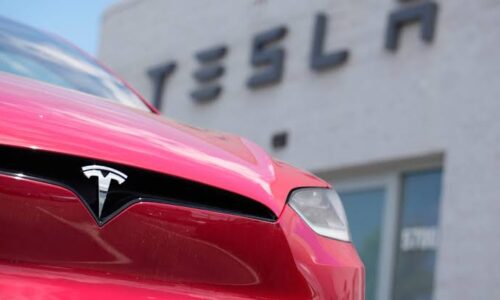- Catherine Maborukoje
- Electric vehicles
- 0 Comments
- 1055 Views
The vehicle is becoming known for innovative designs, advanced technology, and commitment to sustainability.
Electric vehicles (EVs) have become increasingly popular in recent years, as the world grapples with the urgency of environmental concerns and the collective responsibility to reduce carbon emissions.
With their ability to minimize air pollution and reliance on non-renewable resources, EVs are rapidly evolving from a niche alternative to a mainstream reality.
With electric vehicle brands such as Tesla, Ford, Hyundai, Kia, and Volkswagen alongside Xiaomi that just launches its own, amongst many others in the electric vehicle market in 2024, the vehicle is becoming known for innovative designs, advanced technology, and commitment to sustainability.
In this article, we will dive into the latest electric vehicle trends shaping the market, explore the technological advancements propelling their advancements, and discuss the challenges that lie ahead. By understanding the dynamics of this burgeoning industry, we aim to provide a comprehensive outlook on the electric vehicle revolution and its implications for our future.
- Increasing Range and Charging Speed
One of the most critical trends in the EV industry is the increasing range and charging speed of electric vehicles. As per a recent study, the range of EVs has been steadily increasing, with many new models offering ranges of over 300 miles on a single charge. Additionally, charging speeds have also improved significantly, with fast-charging stations capable of charging an EV to 80% in as little as 30 minutes.
- Greater Availability of Charging Infrastructure
Another significant trend in the EV industry is the greater availability of charging infrastructure. Governments and private players worldwide are investing heavily in building charging stations, making it easier for EV owners to charge their vehicles on the go. Moreover, the emergence of wireless charging technology is expected to further simplify the charging process, making it more convenient for EV owners.
- Affordability
Affordability is another critical trend in the EV industry, with many manufacturers introducing more affordable EV models. Governments worldwide are also offering tax incentives and subsidies to encourage the adoption of EVs, making them more accessible to a broader audience.
- Sustainability and Psychology
The popularity of EVs is also driven by sustainability and psychology. Early adopters of EVs and mainstream consumers are becoming increasingly aware of the environmental impact of their choices, leading to a shift towards more sustainable transportation options. Moreover, the perception of EVs as a status symbol is also driving their adoption, with many consumers viewing EVs as a symbol of their commitment to sustainability and innovation.
- Multi-Pathway Approach
Despite the growing popularity of EVs, some industry leaders, such as Toyota’s chairman, believe that a multi-pathway approach is necessary to reduce emissions. This approach involves utilizing battery-electric vehicles (BEV) in addition to automobiles with internal combustion engines, hybrid, or hydrogen drivetrains. According to Toyoda, these other models would eventually make up 70% of the market, while sales of fully electric vehicles would remain at 30%.
- E-Fuels (electro fuel)
Toyota’s chairman, Akio Toyoda, has also expressed interest in developing e-fuels, which are produced with the help of electricity from energy sources such as water and CO2. This approach is seen as a way to reduce emissions while also providing a more flexible transportation solution that can cater to different consumer needs and preferences.
- Focus on Developing Countries
The EV revolution is not limited to developed countries, with many developing countries also investing in EV infrastructure. For instance, China, the world’s largest car market, is expected to surpass the chairman’s prediction of 30% EV market share by the end of 2024.
- Technological Advancements
Technological advancements are also playing a significant role in the EV revolution. For instance, the development of solid-state batteries, which offer higher energy density and faster charging times, is expected to further boost the adoption of EVs.
As we navigate the electric vehicle revolution of 2024, it is evident that the industry is at a pivotal moment, with advancements in range, charging infrastructure, affordability, and sustainability driving its momentum. The electric vehicle revolution is not just a trend; it is a crucial step towards a more sustainable and environmentally conscious transportation landscape for generations to come.
Read Also: The Emergence of Electric Cars: What You Need to Know











